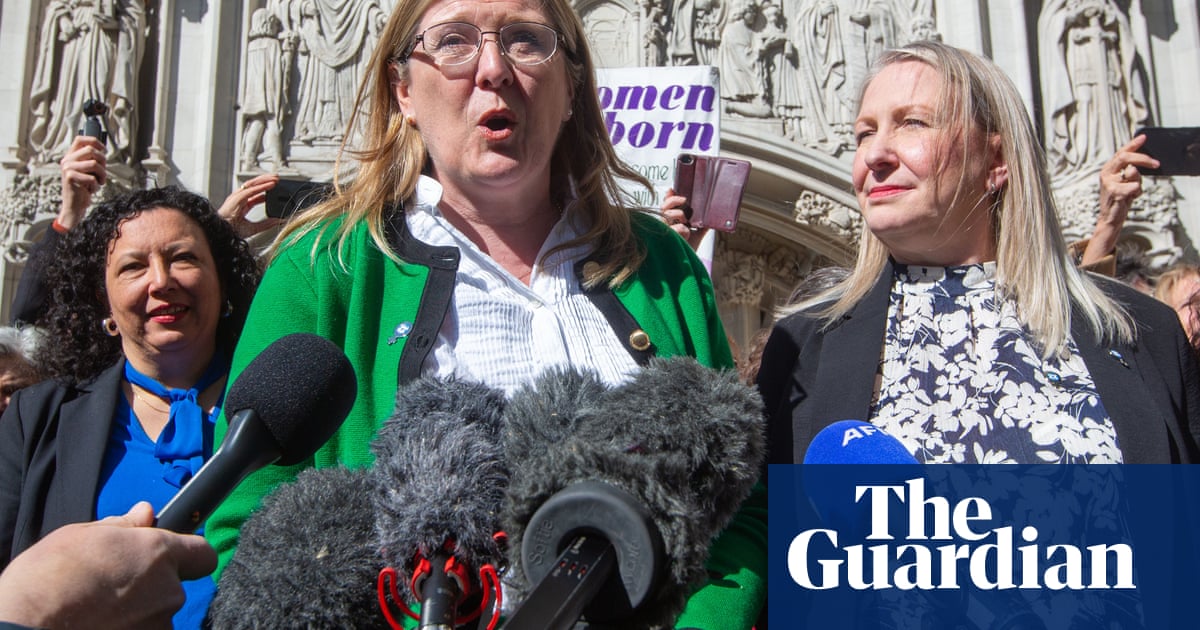For Women Scotland, the group responsible for April’slandmark supreme court rulingon biological sex, is considering further legal action against the Scottish government as they warned the key motivation for bringing the case was being lost amid debates about toilets policy.
At a fringe event at the Scottish Conservative conference in Edinburgh, the gender critical campaign group’s co-director Susan Smith said there had been “extraordinary pushback” since five judges ruled unanimously that the legal definition of a woman in theEquality Act 2010did not include transgender women who hold gender recognition certificates.
Speaking to reporters afterwards, Smith said: “We don’t want to go back to court, we really, really don’t, but if we don’t see some action that may be something we will have to consider.”
She said she was concerned about lack of action by the Scottish government on prisons and schools guidance.
“We have spoken to the Scottish government and asked them to withdraw some of this guidance, just to say that it’s under review – they don’t have to re-issue anything at this point – (but) because it’s clearly unlawful, we really do need some action. They’re telling us they have to wait for the EHRC revised guidance and we don’t believe this is true.”
Since April’s ruling and subsequent interim advice issued soon after by the equalities watchdog, which amounted to a blanket ban on transgender individuals using toilets of their lived gender, much of the public discussion has focused on bathroom facilities, although the ruling has wide-ranging implications for service providers, public bodies and businesses.
Smith said: “I wish we could stop talking about toilets all the time, because that wasn’t really the reason we went to court. We went to court about the prisons, about the rape crisis centres, about the hospitals, where people are uniquely vulnerable”.
She also encouraged individuals to “keep pressure on MSPs and MPs”, and make use of the fighting fund announced by the writer and activist JK Rowling to launch their own actions.
“We really need people to start challenging where they feel that organisations, local councils are not implementing the law. We’re very fortunate to have the fighting fund that JK Rowling set up and that will make a massive difference because when people start to realise that there’s a cost maybe they will start to apply the law.”
Many organisations are awaiting the EHRC’s updated code of practice for public bodies, which is not expected to be ready until November, although others –including the Scottish parliament– have already changed policy to reflect the ruling.
Leading charities includingRefugeandMindthis weekwrote to the watchdogsaying the current consultation timetable is too rushed for proper engagement.
The Scottish Prison Service guidance states that transgender women prisoners are not eligible to be housed in the female estate if they have been convicted of serious offences, although recent reports suggest a number continue to be housed there under segregation rules.
A Scottish Prison Service spokesperson said: “We have received the supreme court’s judgment and are considering any potential impact it may have.”
The Scottish government have been approached for comment.
